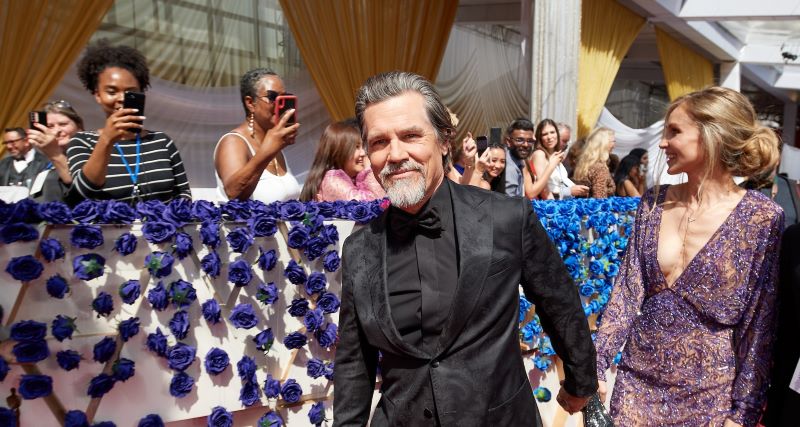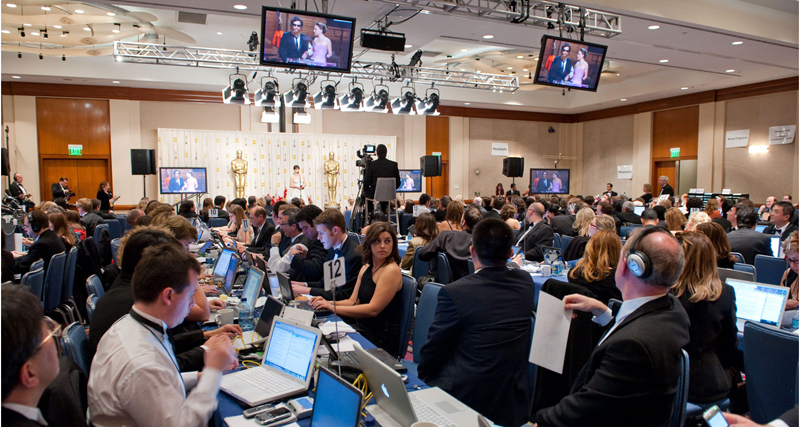
Hollywood’s actors strike prohibits overt publicity to support movies and TV shows, which hurts boxoffice and TV program launches that would otherwise get a lift from plugs by star talent.
The New York Post detects that A-listers, hamstrung by union no-work mandates, are now angling to indirectly “stay in the public eye — and in the minds of Emmy and Oscar voters — through less conventional means.”
For instance, the Post article by Merle Ginsberg observes that Bradley Cooper is generating indirect attention to support his Netflix biopic “Bernstein.” “In a stroke of incredible convenience, the 48-year-old actor is reportedly in the early stages of a new romance with supermodel Gigi Hadid, 28.” Any news coverage of personal involvement certainly mentions Bradley’s current Hollywood work.
The personal and non-film/TV publicity initiatives can be as simple as calling friendly paparazzi photographers for a photo-op. Talent also can keep the publicity flame burning on social media accounts.
Labor union SAG-AFTRA went on strike July 14, preventing its 160,000 members from working or supporting their theatrical films and major TV shows. Being struck is the Producers–SAG-AFTRA TV/Theatrical Contracts. On the other hand, work for other SAG-AFTRA contracts such as TV commercials and news are unaffected.

The union grants exemptions for a small number of films, typically from independents and not major-studio films. This helps film festivals starving for stars, since indie-fare typically dominates the screenings. The exemptions are also called interim agreements or waivers.
Hollywood writers ended their 148-day strike earlier this month, allowing content development and preproduction activities to resume across movie/TV. But actual production in front of cameras is a non-starter without actors, who are also prohibited from providing marketing support.
Regarding publicity, international law firm DLA Piper describes marketing no-nos during the strike as: “Promotion of/publicity services for work under the TV/Theatrical Contracts, such as: tours, personal appearances, interviews, conventions, fan expos, festivals, for your consideration events, panels, premieres/screenings, award shows, junkets, podcast appearances, social media, studio showcases.” That’s pretty much puts a kibosh on the full breadth of publicity. The DLA Piper authors are attorneys Tom Ara, Katherine Imp, David Markman, Cory Bettel and Sergio Ingato.
“Star talent generates a good deal of media coverage, whether one-on-one access with journalists from top media outlets, mass interviews in what are called press junkets, or barnstorming via publicity road tours,” says the third edition of “Marketing to Moviegoers,” the academic/business book. “Talent engaging in overt publicity for their movies is obviously self-serving, but the public doesn’t seem to mind and is drawn to celebrities for their Hollywood glamor.”

As for generating collateral publicity during the actors strike, the New York Daily News referred to Cooper as “the ‘Maestro’ star.” Taylor Swift’s romance with pro footballer Travis Kelce generated gobs of free publicity for the songstress’ theatrical concert movie. Her “Taylor Swift: The Eras Tour” theatrical movie generated a blockbuster $92.8 million in opening weekend Oct. 13-15.
Elsewhere, Oprah Winfrey revealed to the press the “shockingly low” paycheck ($35,000) she received for acting in 1985’s “The Color Purple” just as a new musical drama remake is scheduled to hit theaters Christmas Day. Winfrey received an Oscar nom for supporting actress in the 1985 film and is a producer of the new musical incarnation, but does not act in it.
Stories suggest Kevin Costner feuded with the producer of “Yellowstone” when Costner shifted his attention away from the TV series blockbuster to a personal project film, “Horizon: An American Saga.”
The Post labeled British actress Sheila Atim as one of 10 Up and Comers thespians for her lead role in film distributor A24’s “All Dirt Roads Taste of Salt” that premieres at the Sundance Film Festival. None of the press generated by the foregoing would violate union rules for publicizing movies.
Unions enforce strict discipline, including advising members in the past week not to wear Halloween costumes related to struck movies/TV shows. That prompted a rare backlash from members that the costume mandate is over-the-top, including from a former SAG-AFTRA president.
Related content:
Leave a Reply